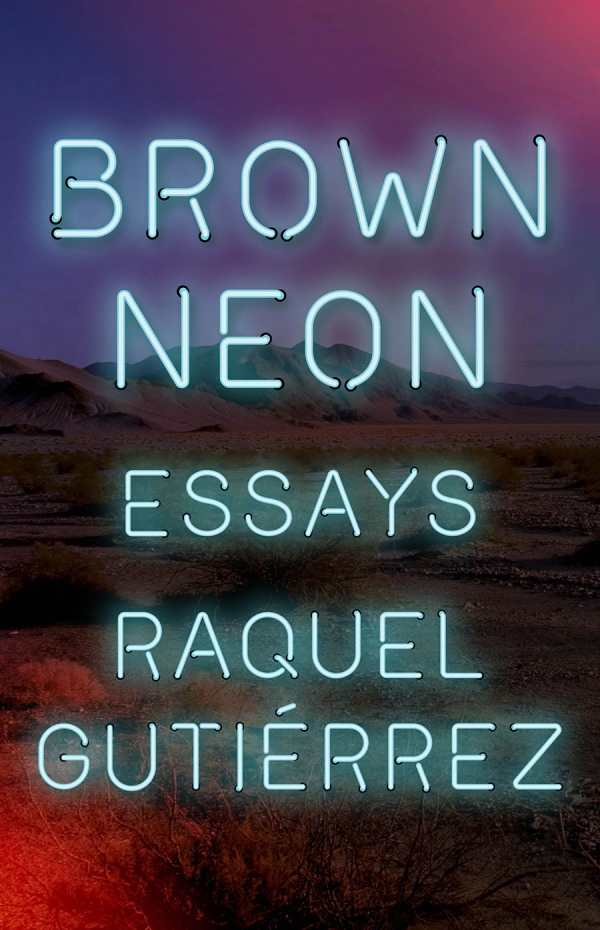Brown Neon
The essays of Raquel Gutiérrez’s Brown Neon mix personal writing with cultural history and criticism to explore race, gender, migration, and art in the southwestern US during the 45th presidency.
“On Making Butch Family: An Intertextual Dialogue” opens the collection with a travel tale, an account of shifting lesbian subcultures, and a tribute to activist Jeanne Córdova, Gutiérrez’s mentor. Later essays cover the significance of “adobe,” the political valences of land art, the class implications of art administration in San Francisco, and interpretations of queer performance art.
The essays embody the complexities of identity: each one weaves multiple strands of narrative and arguments to touch on art, ethnic identity, sexuality, and class. Juxtapositions and abrupt shifts in focus bring variety into each piece, while also calling for attention to the interconnectedness of the self, land, and community.
Gutiérrez begins major sections within each essay by naming the year, orienting them in time and highlighting continuities in the years before and after the 2016 presidential election. Together, the essays paint a portrait of a twenty-first-century American Southwest that is a vibrant, beautiful, and fruitful place for queer Latinx artists, but also one that is fraught, dangerous, and changing at a rapid rate.
The essays are both probing and celebratory in tone. They focus more on exploring problems of identity, community, and citizenship than on offering answers, and frequent rhetorical questions open possibilities for further thought. They are also warm, moving paeans to friendship. The names of Gutiérrez’s friends and artistic collaborators appear on repeat throughout, illustrating the power of communal bonds.
A tribute to the power of art to provoke and challenge its viewers, the essays of Brown Neon are timely and affecting as they consider the nuances of queer Latinx life in the American Southwest.
Reviewed by
Rebecca Hussey
Disclosure: This article is not an endorsement, but a review. The publisher of this book provided free copies of the book to have their book reviewed by a professional reviewer. No fee was paid by the publisher for this review. Foreword Reviews only recommends books that we love. Foreword Magazine, Inc. is disclosing this in accordance with the Federal Trade Commission’s 16 CFR, Part 255.

